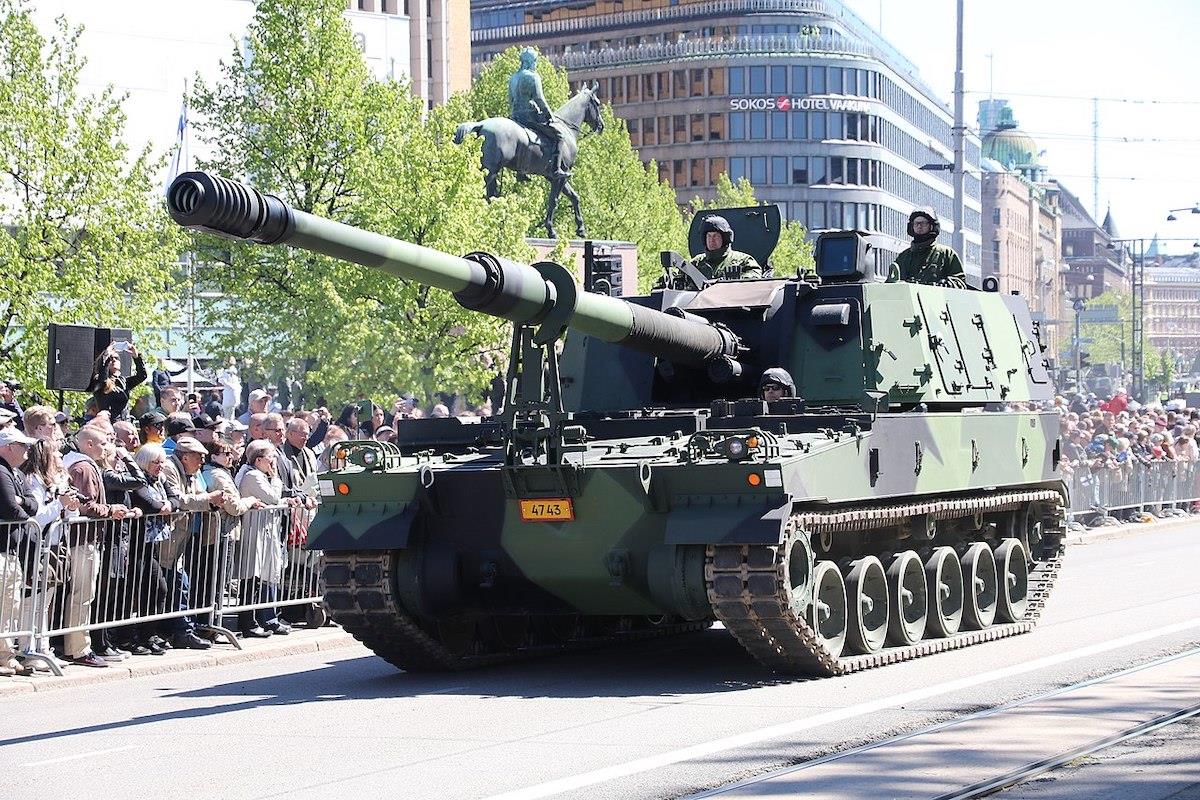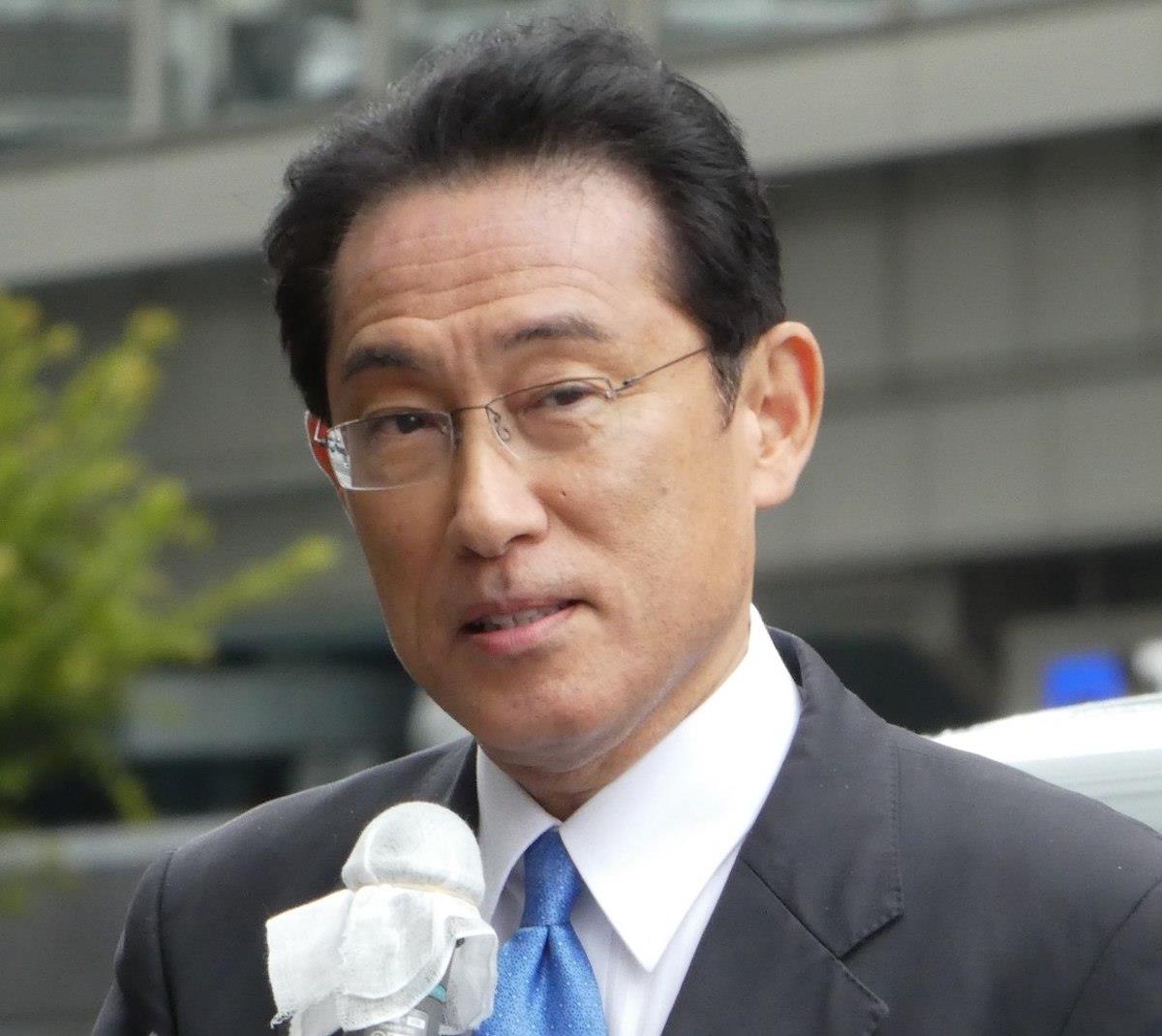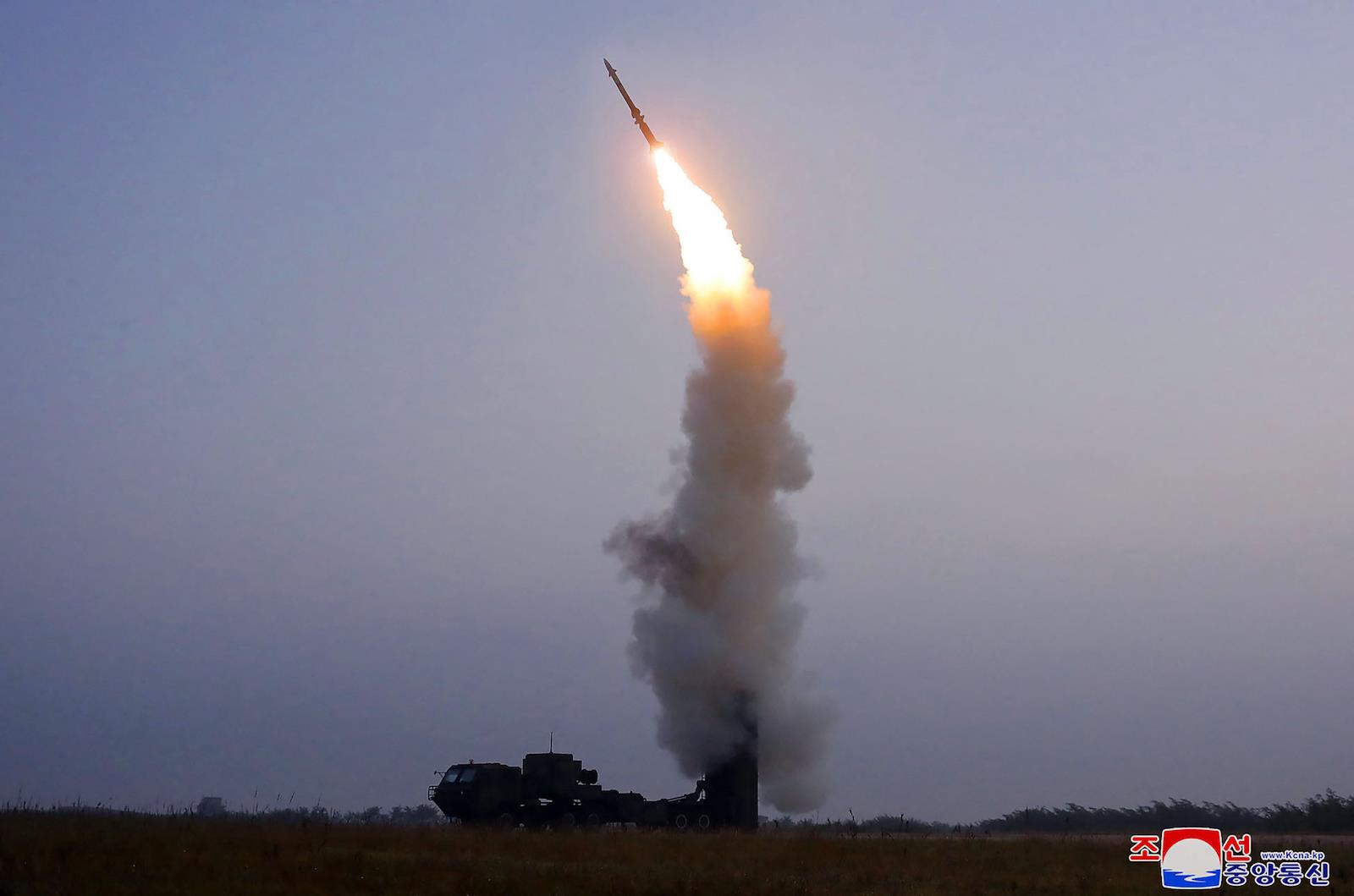(MENAFN- Asia Times)
SEOUL – New South Korean President Yoon Suk-yeol on Friday greeted visiting US President Joe Biden, who is embarking on the first leg of the first Asian tour of his term.
With the two expected to focus on both security and economic security, the location for Biden's arrival, and his first agenda item, was appropriate.
Biden arrived at the US airbase in Osan on Friday afternoon, where he was greeted by South Korea's foreign Minister and senior US officers. From there, he traveled to the nearby city of Pyongtaek, a port south of Seoul on the Yellow Sea coast.
Pyeongtaek is home both to Camp Humphreys, the largest US Army base outside the continental USA, and also to a D-RAM memory fab, and an under-construction non-memory foundry, both run by electronics colossus Samsung.
TV footage showed Biden and Yoon meeting in a Samsung facility, which they toured along with Samsung heir Lee Jae-yong. Samsung is the world's largest maker of memory semiconductors, and chips have emerged, in recent years, as perhaps the most strategic industrial component in a fast-digitizing world, central to modern technologies, industries and weaponry.
In Seoul, Biden will be staying at the hilltop Hyatt Hotel, a favorite site of visiting US presidents thanks to its remoteness from downtown and its defensibility – before Saturday's summit.
With South Korea being a trade and manufacturing powerhouse as well as a US ally, discussions are expected to cover supply-chain resilience, regional relations regarding both an expansive China and a menacing North Korea, and the bilateral alliance.
Biden's trip“will advance the administration's“rock-solid commitment to a free and open Indo-Pacific and to US treaty alliances with the Republic of Korea and Japan,' said White House Press Secretary Jen Psaki.“It will build on more than a year of intensive diplomacy with the Indo-Pacific.”
These aims are likely to fall on fertile ground in South Korea.
Conservative Yoon, who took office on May 10, has repeatedly stated that he wants to firm up his country's US alliance. Joint exercises since 2018 have been downplayed, first to assist then-President Donald Trump's North Korea diplomacy, subsequently due to Covid-19.
While computer simulation drills have been conducted, US officers privately grumble that the downgrading of ground and air exercises has eroded readiness.
The Ukraine war – a conflict in which both Seoul and Tokyo have sided with the US-led West – will be on the agenda. South Korea, a leading supplier of technological components and arms, holds potential leverage in terms of both sanctions and production.
Take semiconductors. Chips are a key element of advanced weapon and aviation systems, and with Russia suffering ongoing material losses in Ukraine, Moscow needs to ramp up arms production.

A South Korean-made K9 155mm self-propelled howitzer at a parade in Finland. Photo: WikiCommons
South Korea also manufactures the K9 155mm self-propelled howitzer, a weapon that has been successfully exported to countries including Finland, Poland and Turkey. At a time when an artillery battle is underway in Donbas, allies are arming Kiev with NATO-standard weapons to wean Kiev off its reliance on Russian-standard munitions.
Taking an unusual stance for a South Korean president, Yoon, in his inaugural speech, stated that his country should stand up and actively promote the principles of democratic rights and freedoms in global fora. Seoul has customarily kept a low profile in that area, preferring to focus on diplomatic pragmatism.
Yoon's speech was likely music to the ears of Biden, who prioritizes these principles.
The regional dimension
Though Yoon wins the kudos of being the first regional leader to host the US president, Biden will fire off his most spectacular geopolitical fireworks in Tokyo.
There he will have a summit with Prime Minister Fumio Kishida. But he is also expected to unveil the long-awaited details of the Indo-Pacific Economic Framework – an ambitious, multilateral, regional economic strategy.

Japan's Prime Minister Fumio Kishida. Photo: Agencies
South Korean media expect Yoon to join that meeting via video conference to announce Seoul's participation.
The IPEF is designed to secure resilient supply chains, set rules for the digital economy and provide top-quality investments in infrastructure.
It takes the place of the Trans-Pacific Partnership, or TPP. That regional free trade agreement was ready for launch in 2016, until Donald Trump withdrew the US in 2017. De facto leadership of the body has since been taken over by Tokyo.
Biden will also have a summit in Tokyo with the leaders of the unofficial“Quad” security alliance – Australia, India and Japan – a loose regional grouping that aims to counter China across the Indo-Pacific. Yoon has expressed his intention of joining Quad working groups – a precursor to joining the body.
The Northeast Asia trip follows a summit Biden held in Washington on May 12-13 with the leaders of ASEAN – a region where China has, in recent years, been expanding its reach and influence.
However, some experts were underwhelmed by the outcome of the summit , given the low sums the US aimed at the region, and also by some criticism of IPEF, seen as more of a vision than a detailed plan.
Biden may hope for better from Northeast Asia, where both Japan and South Korea are firm security allies, as well as being world-leading economic powerhouses.
Here, experts expect Seoul-Tokyo relations to be on the schedule in both capitals. The lack of a“NATO of East Asia” has been a long-term stumbling block for US diplomats seeking to forge a united regional front against China and North Korea. Biden has some experience in this space.
As US vice-president, Biden was a key player behind a 2015 Seoul-Tokyo deal on“comfort women.” That was nullified by Seoul's previous Moon Jae-in administration, infuriating Tokyo and sending relations into a steep downward spiral from which they have far from recovered.
The US president has an unusually crowded schedule of business to transact, partly because this is his first presidential visit to the region.
Biden's first summits as president, both held in Washington, were with Japan and South Korea. However, this is his first visit to the region as chief executive since taking office in January 2021, and 16 months later, there is still no US ambassador in Seoul.
Circumstances have dictated Biden's agenda. He has been grappling with the domestic issues facing a deeply polarized American society, the economic issues of the post-Covid era and the security issues of a full-scale war in Europe.
This focus has led some – including a group of regional academics who will debate the issue in an online conference next week – to assert that the US has prioritized the west and de-prioritized the east.

A test-fire of a 'newly developed' anti-aircraft missile carried out by the Academy of Defense Science of North Korea. Photo: AFP / KCNA / KNS
The perennial security challenge
While the hot war in Ukraine dominates global headlines, 35 miles north of the Seoul summit location lies a long-simmering, decades-long challenge that has confounded generations of US policymakers.
And Pyongyang is not sitting still. It has been on an accelerated weapons testing program this year and there are concerns among some that it might seize the moment to make a point by testing a missile or even detonating a nuclear device while the US president is on the peninsula.
However, the isolated and impoverished nation has, since last week, been caught in the grip of a shock Covid outbreak. The virus has breached the tried-and-trusted playbook Pyongyang has customarily deployed – notably, ultra-tight border closures – to shield its population from pandemics including SARS, MERS, Ebola, and, until last week, Covid-19.
That crisis may well be monopolizing the attention of the regime's leadership. Though South Korea has publically offered assistance to the North, those offers have so far been ignored.
Some analysts hope the Biden visit could provide an opportunity for assistance.
“Yoon and Biden will likely express a desire to help the North Korean people while pointing out that Pyongyang is misallocating resources to its illegal nuclear and missile programs,” Leif-Eric Easley, an associate professor of international studies at Ewha Womans University in Seoul, wrote in an email to reporters.
“Seoul and Washington know how to strengthen military deterrence; the less straightforward policy challenge is how to give Kim options to make better choices.”
Easley suggested that South Korea could unconditionally offer contactless delivery of medical aid over the border before a larger humanitarian package including food and vaccines can be facilitated through international organizations.
However, other experts have told Asia Times that Pyongyang is more likely to turn to China or Russia for support.
Unconventional moves
The location for the Biden-Yoon meet – a chip fab – was unusual. The site of their summit is unusual, too: South Korea's National Museum.
Set in a park in Seoul's Yongsan district, it was the site of a massive US Army base, prior to the relocation of troops out of the capital to Camp Humphreys.
Yoon, who took office last month, has relocated the presidential offices to the Ministry of National Defense compound in Yongsan, having vowed not to enter the Blue House – the purpose-designed presidential compound that has been in use since South Korea emerged as a state in 1948.
Opponents have slammed the speed and expense of the move, as well as its rationale. While Yoon has criticized the Blue House for physically distancing the national leader from his citizenry, Yoon's critics scoff that his decision to shift locations was influenced by shamans.
MENAFN20052022000159011032ID1104247583